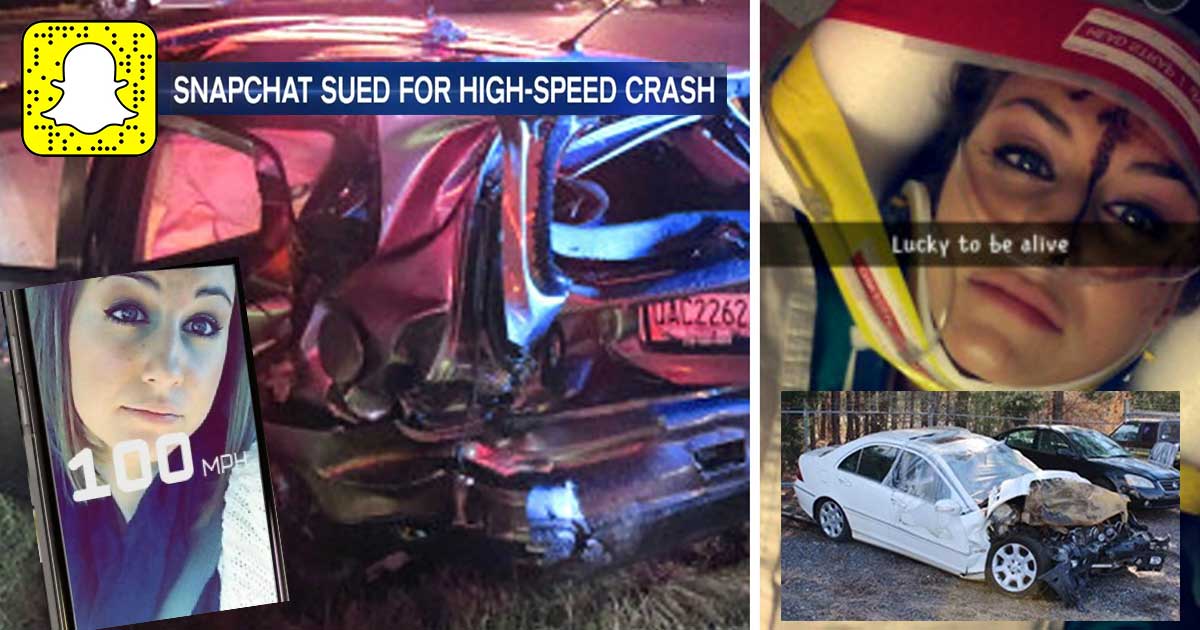New Ruling Says Snapchat Can be Sued for Role in Fatal Car Crash

Three young men died in Walworth County, Wisconsin in May of 2017. The men were in a vehicle traveling at a high rate of speed, 123 mph according to the Snapchat filter applied to the images captured from the drive. Not long after one of the boys used the filter, the car swerved off of the road, hitting a tree, and killing all three of them, says NPR.
Following the incident, the boys’ parents would attempt to sue Snap Inc., the folks behind Snapchat. In the lawsuit, they would allege that the company “knowingly created a dangerous game” with the use of the filter that encourages users to take a selfie, displaying their speed in the meantime.
Snapchat does warn users not to use this filter while driving. However, it seems as if this warning simply isn’t enough for some parents who would like the company behind the app to be held responsible for these sorts of tragic situations and ultimately get rid of the so-called “game” entirely.
Normally, a social media company wouldn’t be held responsible for something like this. Generally, these sorts of cases end up being thrown out as social media companies generally aren’t held responsible for what users do or say on their platform. In this case, the suit was thrown out once again by the district court. However, the appeals court said not so fast as the verdict was reversed, giving the plaintiffs the right to sue over the issue.
NPR reports, “Snap indisputably designed Snapchat’s reward system and Speed Filter and made those aspects of Snapchat available to users through the Internet,” Judge Kim McLane Wardlaw wrote for the court. “This type of claim rests on the premise that manufacturers have a ‘duty to exercise due care in supplying products that do not present unreasonable risk of injury or harm to the public.'”
Legal experts seem to think that it’s going to end up creating quite a complicated battle. While the plaintiffs will have their day in court, these experts seem to think that the chances of Snapchat losing are likely pretty slim. Getting in front of a jury is a big step for those seeking damages, though.
A similar case in Georgia found that it wasn’t appropriate for Snap Inc. to be held liable for somebody misusing their product. However, it definitely opens an interesting dialogue of who is at fault.

